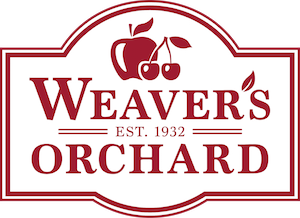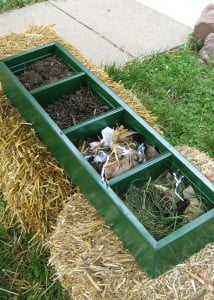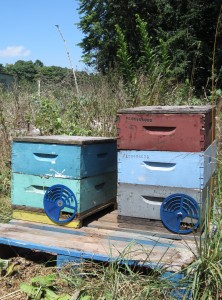Theories about the best ways to grow gardens abound. Do you have to start seedlings indoors? Does it matter whether the moon is waxing or waning when you plant? Will watering plants during the heat of the day burn them? Will playing music, like Mort Garson’s “Symphony for a Spider Plant,” speed your plants’ growth? What about talking to your plants?
The sheer amount of theories, myths and conflicting information can make new gardeners dizzy. How can a gardener know when information is reliable?
Penn State established its Master Gardener program to address exactly this issue. It extensively trains over 1,000 volunteers who can provide researched, reliable and consistent garden advice for beginning gardeners, or gardeners who wish to expand their knowledge.
Once a month, Penn State of Berks Master Gardeners have been coming to Weaver’s Orchard as part of Weaver’s “First Wednesdays on the Farm.” During June’s “First Wednesday,” Master Gardener Elizabeth Finlay gave an interactive lecture on composting which I wrote about earlier this month, and for July’s class, Master Gardener Pat Mangas discussed pollinating insects.
On August 3–just a week and a half from now–another volunteer from Penn State will give a class on butterfly and herb gardens. In September, the gardening class will teach participants how to build container gardens.
Pat Mangas’s discussion of pollinators was timely. Many people have heard about the problem of disappearing honeybees. There has even been a recent documentary, Vanishing of the Bees, to bring the issue to a wider audience. Huge numbers of honeybee hives are now empty because of a phenomenon known as colony collapse disorder. Serious problems threaten other pollinators as well. Vanishing pollinators leave a serious void because, says a Penn State Master Gardeners web page, “One of every three bites of food comes to us by pollinators!”
The world is losing its pollinators because there are fewer natural habitats, more pesticides and more diseases, says the Penn State College of Agricultural Science’s website.
Mangas focused on what home gardeners can do to help pollinators thrive. Mainly, she indicated, encouraging pollinators means creating habitats that feel like home for bees, butterflies, hummingbirds and even the less glamorous pollinators like bats, moths, flies and beetles.
To build such habitats, gardeners can plant a healthy amount of native perennials and refuse to plant invasive species. Pollinators don’t see non-native plants as food. For instance, said Mangas, there is a kind of non-native dogwood tree that no insects will touch. This may seem like the tree is just hardy, but actually, it means that it doesn’t provide food that insects like! It’s essential to plant trees, flowers, fruits and vegetables that pollinators can stomach.
A pollinator-friendly habitat also has to be a little muddy. Mangas suggested punching a small hole in the bottom of a plastic water jug, hanging it near your garden, and filling it with water. The water will drip from the jug slowly and create a small mud puddle that pollinators can drink from or use to build their homes.
Each of the Master Gardener presentations have been packed with information: handouts, helpful tips, and even book suggestions. Mangas brought enough helpful handouts to completely cover the table at the front of the class, and she recommended reading Douglas W. Tallamy’s Bringing Nature Home: How You Can Sustain Wildlife with Native Plants.
I left this session thinking about the Master Gardener’s advice. Soon after her discussion of invasive plant species, my family and I drove through Virginia and North Carolina, where invasive Kudzu tangled across the roadsides, making hundreds of trees look like they were hidden under green drop cloths. Kudzu was originally introduced for erosion control and now crowds out native species as it blankets them with leafy vines. It was strong visual evidence for the need to plant native species.
So I left the class pondering, but also encouraged. Soon I will be moving to a place where I won’t have a giant yard, but Mangas said even a small space can work well if you can talk your neighbors into cultivating a pollinator-friendly habitat, too.
If you missed the past Master Gardener classes at Weaver’s “First Wednesdays on the Farm,” you can still come to the next ones, or benefit from the variety of services Penn State of Berks Master Gardeners offer.
Visit the Berks County Agricultural Center in Leesport to shop for reliable gardening books, pick up free fact sheets and brochures, or walk through the Berks County demonstration garden. You can also call the Master Gardener horticulture hotline with questions about your garden, lawn or houseplants. And of course, be sure to come to the next classes on Aug 3 and Sept 7 at 1 p.m.! See our website to learn about other classes offered, and R.S.V.P. on Weaver’s Facebook page. Mark your calendar!
For more information on creating pollinator-friendly habitats, visit:


